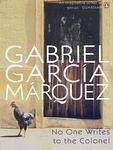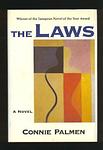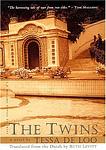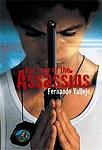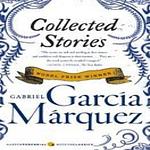The Greatest Dutch, Colombian "Fiction" Books Since 1950
Click to learn how this list is calculated.
This list represents a comprehensive and trusted collection of the greatest books. Developed through a specialized algorithm, it brings together 300 'best of' book lists to form a definitive guide to the world's most acclaimed books. For those interested in how these books are chosen, additional details can be found on the rankings page.
Genres
Countries
Date Range
Reading Statistics
Click the button below to see how many of these books you've read!
Download
If you're interested in downloading this list as a CSV file for use in a spreadsheet application, you can easily do so by clicking the button below. Please note that to ensure a manageable file size and faster download, the CSV will include details for only the first 500 books.
Download-
1. One Hundred Years of Solitude by Gabriel García Márquez
This novel is a multi-generational saga that focuses on the Buendía family, who founded the fictional town of Macondo. It explores themes of love, loss, family, and the cyclical nature of history. The story is filled with magical realism, blending the supernatural with the ordinary, as it chronicles the family's experiences, including civil war, marriages, births, and deaths. The book is renowned for its narrative style and its exploration of solitude, fate, and the inevitability of repetition in history.
-
2. Love in the Time of Cholera by Gabriel García Márquez
This novel follows the story of Florentino Ariza and Fermina Daza, who fall passionately in love in their youth. However, Fermina eventually marries a wealthy doctor, leaving Florentino heartbroken. Despite this, Florentino remains devoted to Fermina for over fifty years, patiently waiting for her husband's death to have another chance at her love. The story is set against the backdrop of a cholera epidemic, serving as a metaphor for the transformative power of love and the destructive power of obsession.
-
3. Chronicle of a Death Foretold by Gabriel García Márquez
The novel unfolds as a murder mystery, revealing the planned revenge killing of a young man named Santiago Nasar by the Vicario brothers. They believe Santiago has dishonored their sister, Angela, by taking her virginity before her marriage to another man. Despite the impending murder being common knowledge within the small Colombian town, a series of coincidences and misunderstandings prevent anyone from intervening, leading to Santiago's tragic and foretold demise. The narrative explores themes of honor, fate, and the collective responsibility of a community.
-
4. The Discovery of Heaven by Harry Mulisch
"The Discovery of Heaven" is a philosophical novel that explores the relationship between mankind and the divine. The story revolves around two friends, an astronomer and a philologist, who are manipulated by heavenly forces to father a child who is destined to return the Ten Commandments to God. As the narrative unfolds, it delves into complex themes such as friendship, love, art, science, and the existence of God, presenting a thought-provoking analysis of the human condition.
-
5. The Autumn of the Patriarch by Gabriel García Márquez
The novel explores the life of an eternal dictator who has ruled over a Caribbean nation for several decades. The patriarch's oppressive regime is marked by corruption, violence, and absurdity, while his personal life is characterized by loneliness and paranoia. The narrative is a complex, non-linear exploration of power, time, and the dehumanizing effects of political tyranny. The patriarch's death prompts a reflection on his life and reign, revealing a mythical, magical, and horrifying reality.
-
6. No One Writes to the Colonel by Gabriel García Márquez
This novel centers around an impoverished, retired colonel who has been waiting for many years for the pension he was promised. Despite his increasing desperation and the urging of his wife, the colonel remains hopeful and proud, refusing to sell his only valuable possession, a rooster that he plans to enter in a cockfight. The story explores themes of poverty, pride, and the struggle for dignity amid difficult circumstances.
-
7. All Souls' Day by Cees Nooteboom
"All Souls' Day" is a novel about a Dutch documentary filmmaker, who, after losing his wife and daughter in a car accident, moves to Berlin to escape his grief. The protagonist becomes entangled in a series of romantic relationships while struggling to come to terms with his loss. The book blends narrative with philosophical musings on memory, loss, and the nature of time, using the city of Berlin as a backdrop to illustrate the protagonist's internal journey.
-
8. Return to Oegstgeest by Jan Wolkers
"Return to Oegstgeest" is a semi-autobiographical narrative that explores the author's childhood and adolescence in the small Dutch town of Oegstgeest during the pre and post-World War II era. The book delves into the author's troubled relationship with his stern, religious parents, his struggles with faith, and his burgeoning artistic and sexual awakening. The narrative is a poignant exploration of memory, family, and the experiences that shape one's identity.
-
9. The Garden Where the Brass Band Played by Simon Vestdijk
This novel explores the life of a young boy named Nol Rieske, who falls in love with the daughter of a bandmaster in a small Dutch town. As he grows older, he becomes a successful musician, but his obsession with the bandmaster's daughter, who is mentally ill, continues to dominate his life. The story is a detailed exploration of a man's lifelong infatuation and its profound impact on his personal and professional life.
-
10. Rituals by Cees Nooteboom
"Rituals" is a philosophical novel that explores the lives of three men, each dealing with existential crises in post-World War II Netherlands. The narrative delves into their individual searches for meaning and purpose, their struggles with societal norms, and their attempts to establish personal rituals as a way to create order in a seemingly chaotic world. The book is a profound meditation on the human condition, examining themes of time, death, and the nature of reality.
-
11. Smell of Sadness by Alfred Kossmann
"Smell of Sadness" is a poignant narrative that revolves around a man who, after being separated from his wife during the Second World War, embarks on a journey to find her. The story takes us through the protagonist's experiences, his encounters with various people, and his personal struggles. The book is a deep exploration of human emotions, particularly the profound sadness that permeates through the protagonist's life, making it a moving and thought-provoking read.
-
12. Gimmick! by Joost Zwagerman
"Gimmick!" is a novel that explores the life of a young artist in the Amsterdam art scene during the 1980s. The protagonist is caught in a world of excess, parties, drugs, sex, and betrayal while trying to find his place and make a name for himself. The story delves into the struggles of artistic life, the lure of fame and the pitfalls of success, providing a raw and gritty depiction of the times.
-
13. The Laws by Connie Palmen
"The Laws" is a philosophical novel that follows the life of a young woman studying philosophy who becomes intrigued by the concept of laws, both societal and personal. Over the course of seven years, she engages in relationships with seven different men, each representing a different aspect of her studies including a priest, a physicist, an artist, a psychiatrist, a lawyer, a biologist, and a writer. Each relationship provides a new perspective on her quest to understand the laws of the universe and human nature.
-
14. The Adventures and Misadventures of Maqroll by Alvaro Mutis
"The Adventures and Misadventures of Maqroll" is a collection of seven novellas that follow the life of Maqroll, a seafarer and adventurer. The stories, set in various locations around the globe, are filled with philosophical musings, poetic language, and vivid descriptions of exotic locales. Maqroll's encounters with a host of characters, from pirates to prostitutes, and his experiences with love, loss, and loneliness, all contribute to a richly textured narrative that explores the human condition and the nature of existence.
-
15. The Twins by Tessa De Loo
"The Twins" is a poignant narrative about twin sisters, separated at a young age due to the Second World War. One sister grows up in the Netherlands under Nazi occupation, while the other is raised in Germany as part of the Hitler Youth. After six decades of separation, they meet again and begin to share their experiences, discovering the impact of the war on their lives and the stark differences in their upbringing. The book explores themes of identity, loyalty, and the long-lasting effects of war on individuals and families.
-
16. Our Lady of the Assassins by Fernando Vallejo
This novel is a dark and gripping exploration of life in Medellín, Colombia, during the height of the drug wars. The protagonist, a middle-aged writer, returns home after many years abroad, only to find his city ravaged by violence and death. He falls in love with two teenage assassins, who guide him through the underworld of the city, exposing him to the brutal realities of life in a place where human life has lost all value. The story is a bleak commentary on the devastating effects of drug trafficking and political corruption on society.
-
17. 100 Years Of Solitude by Gabriel García Márquez
The novel chronicles the rise and fall of the Buendía family over seven generations in the mythical town of Macondo, founded by the family's patriarch, José Arcadio Buendía. The story delves into the lives of the Buendía family, whose members experience love, lust, obsession, and despair, intertwined with magical and surreal events. The family's history mirrors and critiques the social and political evolution of Latin America, exploring themes of solitude, destiny, and the inevitability of history repeating itself. The novel's rich, imaginative narrative has made it a cornerstone of magical realism, profoundly influencing the literary world.
-
18. Collected Stories by Gabriel García Márquez
"Collected Stories" brings together a diverse array of tales that blend the magical with the mundane in a uniquely evocative manner. The stories traverse a variety of settings and characters, each infused with the author's rich imagination and lyrical prose. Themes of love, violence, and destiny are explored through narratives that often blur the lines between reality and fantasy, capturing the complexities of human experience and emotion. This collection showcases the author's ability to illuminate the extraordinary within the ordinary, making the familiar seem fantastical and the fantastical accessible.
-
19. The Sound Of Things Falling by Juan Gabriel Vásquez
"The Sound Of Things Falling" is a thought-provoking novel that delves into the complex and haunting aftermath of the drug trade in Colombia. Set against the backdrop of a turbulent country, the story follows the lives of two men whose paths intertwine in unexpected ways. Through vivid storytelling and poignant reflections, the book explores themes of memory, guilt, and the lasting impact of violence on individuals and society.
-
20. Abessijnse Kronieken by Moses Isegawa
"Abessijnse Kronieken" is a powerful and captivating novel set in Uganda during the tumultuous era of Idi Amin's dictatorship. The story follows the life of Mugezi, a young man navigating through the complexities of love, family, and political upheaval. With richly drawn characters and vivid descriptions, the book explores themes of identity, cultural clash, and the struggle for freedom in a country torn apart by corruption and violence.
-
21. Catalina by Elisa Mujica
"Catalina" is a historical novel set in the 16th century, which delves into the life of a young woman of noble birth in the Spanish colony of New Granada (modern-day Colombia). The narrative follows the titular character as she navigates the complexities of her social position, love, and the restrictive norms of the time. As she grows, she becomes increasingly aware of the injustices surrounding her, particularly those faced by the indigenous people and women. The novel explores themes of power, identity, and resistance, painting a vivid picture of colonial Latin America through the eyes of a character caught between the expectations of her society and her personal desires for freedom and self-expression.
-
22. Dancing In The Dark by Caryl Phillips
"Dancing in the Dark" delves into the complex life and career of Bert Williams, a pioneering black entertainer in early 20th-century America. The novel explores Williams' struggles with his racial identity and the societal pressures that come with it, as he performs in blackface to gain acceptance and success in the predominantly white entertainment industry. Through a poignant narrative, the book examines themes of race, performance, and the personal costs of compromise in a society divided by color lines, revealing the emotional and psychological toll of Williams' choices on his personal and professional life.
-
23. In The Beginning Was The Sea by Tomás González
The novel follows a disillusioned urban couple who seek to escape the chaos and superficiality of city life by moving to a remote tropical coast in Colombia. Dreaming of a simpler existence and self-sufficiency, they purchase a decrepit estate, but their idealistic venture quickly deteriorates as they face a harsh reality. The couple's relationship strains under the pressures of the unforgiving environment, isolation, and the challenges of their new rural life, leading to a tragic culmination. The story is a profound meditation on the complexities of nature, the fragility of human ambition, and the illusory nature of utopian dreams.
-
24. Changó, The Biggest Badass by Manuel Zapata Olivella
This novel is a vibrant tapestry of African heritage and the diasporic experience, weaving together the rich history, mythology, and spirituality of the African continent with the brutal realities of slavery in the Americas. It follows the life of Changó, a powerful African king and deity in the Yoruba religion, who embodies strength, passion, and the struggle for justice. Through his journey, the narrative explores themes of resistance, cultural identity, and the enduring spirit of African people as they navigate and influence the New World, all while maintaining a connection to their ancestral roots and traditions.
-
25. Strange Pilgrims by Gabriel García Márquez
"Strange Pilgrims" is a collection of twelve short stories that explore the lives of Latin American characters who find themselves in unfamiliar European settings. The tales, infused with magical realism, delve into themes of dislocation, love, death, and the surreal experiences of immigrants. The characters, often caught between their old world and the new, face unexpected situations and encounters that challenge their understanding of reality. The stories weave a tapestry of poignant, strange, and sometimes whimsical narratives that reflect the author's signature style of blending the fantastic with the ordinary.
Reading Statistics
Click the button below to see how many of these books you've read!
Download
If you're interested in downloading this list as a CSV file for use in a spreadsheet application, you can easily do so by clicking the button below. Please note that to ensure a manageable file size and faster download, the CSV will include details for only the first 500 books.
Download




